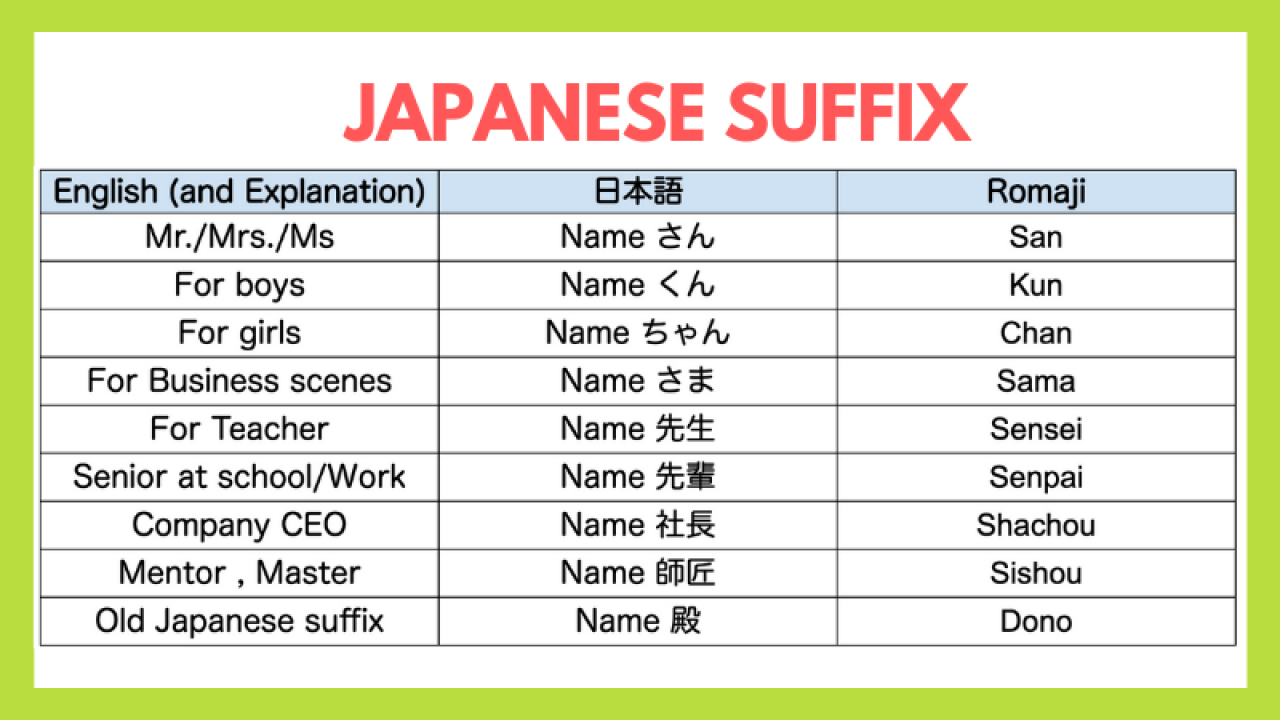What Does Senpai Mean In Japanese After A Name

So a senpai may attach this to a junior s name.
What does senpai mean in japanese after a name. It s called yobisute and is the equivalent of calling an english speaker by their surname only. A kōhai similarly addresses a senpai with the suffix senpai or san. In japanese or chinese shows after names i often see things tagged on the end like sama or kun and those aren t really what i m concerned about but i was watching vampire knight and yuuki is always calling kaname kaname senpai. In japanese the word is used more broadly to mean teacher or master like sensei senpai is used in english in contexts of martial arts as well as religious instruction in particular buddhism.
Examples of these ma. You might find it transcribed as. It means you re explicitly showing you know two things at least. Senpai 先輩 せんぱい this signifies that a person in a group has more experience such as a senior colleague or a high school senior if you re in a lower grade.
This is why many japanese speakers struggle to address people by their given name only when. This generally isn t used. Kōhai こうはい refers to a person as a junior. Honorific suffixes also indicate the level of the speaker and referred individual s relationship and are often used alongside other components of japanese honorific speech called keigo 敬語.
X senpai is someone who reached some major stage in life before you did and you consider it normal to defer to him her as your senior when you two interact. As with sensei is used interchangeably by sex and does not necessarily follows the name. Because not adding anything is considered extremely rude. The first is to attach the person s name before 先輩 senpai as with 吉田先輩 yoshida sempai for working adults it s also common to attach san after someone s name as with 吉田さん yoshida san the second way is to directly refer to someone as senpai without attaching their name.
Sensei in those contexts refers to someone of a higher rank than senpai. Ranking below a senpai is a kohai. Also used for higher grade classmates. Generally it refers to someone older.
A senpai addresses a kōhai with the suffix kun after the kōhai s given name or surname regardless if the kōhai is male or female. These suffixes are attached to the end of names and are often gender specific. So what s that mean. It is extremely unusual for a kōhai to refer to a senpai with the suffix sama which indicates the highest level of respect to the.

















